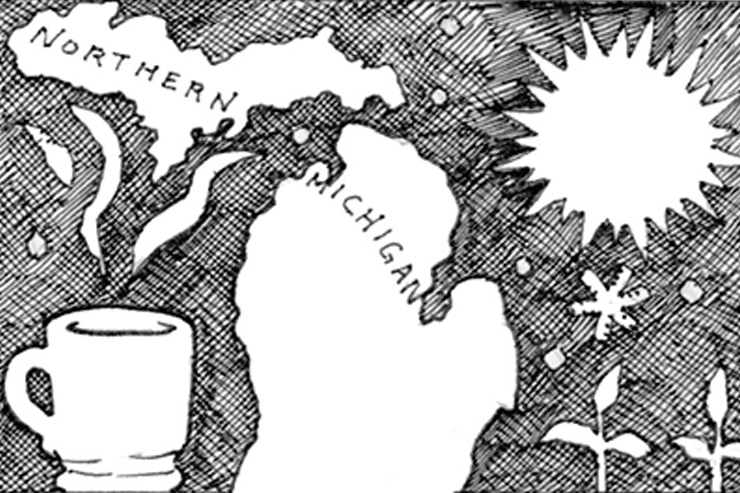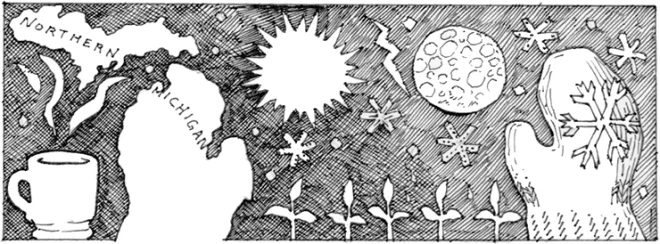
I’ve been gardening for as long as I can remember. It’s a tradition in my family—everyone pitches in, whether it’s planting seeds or weeding the rows. My grandparents did it (I understand now why they always had zucchini bread on hand), my mom did it, and now it’s my turn to keep the gardening spark alive with a lot of garden love.
Lately these mornings I step out into the garden, feeling alive. The sun is shining and the birds are singing, and I can’t help but smile. I love all the seasons of gardening, but I love fall most of all: when summer is long over, but there are still plenty of fruits and vegetables ripening on the vine; when temperatures are perfect for spending hours outside; when there’s a sense of magic in the air as dusk falls over the garden.
I get to work, digging in the dirt and planting tomatoes and peppers. It’s hard work, but it feels so good. I can feel my muscles working as I hoe through the rows, and the fresh air is doing wonders for my lungs.
As I work, I can’t help but think about how connected I am to nature out there. I have so much garden love. Every time I step out into the garden, I feel like I’m connecting with nature in a way that no other activity can match. Sure, sometimes it’s hard work—but that just makes it all the more satisfying when everything comes together, and we get a bumper crop of tomatoes or strawberries.
In today’s story about garden love, “Gardening Up North,” the author Danielle Horvath of Beulah, MI has a long-standing love affair with vegetable gardening, despite the many challenges it brings.
More Joy of Gardening
This story comes from our archive that spans over 30 years, and includes more than 130 magazine issues of GreenPrints. Pieces like these that turn the joy of gardening into everyday life lessons always brighten up my day, and I hope this story does for you as well. Enjoy!

Gardening Up North
By Danielle Horvath of Beulah, MI

For over 20 years, I have battled sand, drought, cold, bugs, and weeds to grow a vegetable garden up here in Northern Michigan. Some years, when the deer ate all my tender new shoots or the first frost came in August, I vowed to never grow a garden again.
But fresh dirt calls to me. Each year, it holds the promise of another spring, another growing season, another chance. From the seed catalogs that arrive in the dead of winter—just when I need to see a burst of color—to the flats of seedlings I sprout indoors in the early spring, to the first warm afternoon I can finally get outside and see what’s there, it’s like being with an old friend. From April through September, I can count on having broken nails, sore knees, and a stiff back. But the rewards are great.
I spend my early mornings in the garden, sipping my coffee while I work. I have hauled manure—truckloads of it. I have spent an entire afternoon trying to start an old rototiller. I have rushed home on a cold night to cover tender plants against a late spring frost. I have planted by the full moon and during a thunderstorm.
In Northern Michigan, we’re famous for our sand dunes, cherry trees—and unpredictable weather. It can snow in May and be 90° in July. Mother Nature certainly has an agenda of her own. But instead of giving up, we built a greenhouse to protect plants and extend the season.
Gardening is part of my life. It’s just something I have to do. ❖
By Danielle Horvath of Beulah, MI, published originally in 2015-16, in GreenPrints Issue #104. Illustrated by Linda Cook Devona

Did this remind you of a similar story in the garden that you’d like to share? Leave a comment below, I’d love to hear it.




It’s so true on the way to gardening, I live in Colorado Springs Colorado now and can’t start my little garden till ,late May if that , June middle of June, our ground is still frozen till May. , I’ve lived in Michigan orb and rised and helped my grandma and mom all the time and canny out of of ears , loved it
I can so relate to this story as I gardened with my husband in northern Wisconsin for over 30 years. I remember having 3 different sizes of plastic bags on hand to cover peppers, egg plants and tomatoes when frost was a threat in mid May. To this day I think about the plaque that hung near the patio door that we used to get out to the garden: “To plant a garden is to believe in tomorrow “. So true if you’re an “up north “ gardener. You need to be on the watch every day well into June.